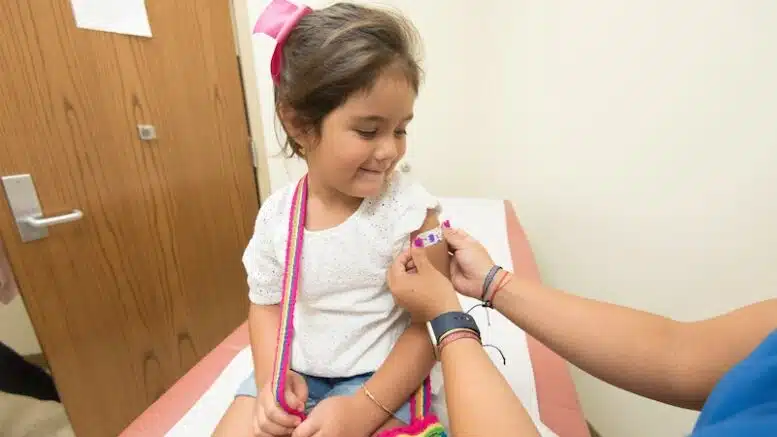Children need to have immunisation in the form of vaccines to offer them protection against various diseases. It offers protection particularly when they are younger, and their immune systems are going through the developmental stage. When should you take your child to see their doctor for their vaccinations?
Well, as there are different vaccines designed for different age groups, we are going to outline the most important by the appropriate age groups. The good news is that because many of them are compulsory, NIP, that is Australia’s National Child Immunization Program covers the funding for some of the most important vaccines.
When Your Child is Aged 4 years or Less
To begin with, let’s start with the youngest age group – the 4 years or less children. Through the National Immunisation Program, the following vaccinations are free for children in this age group:
- Pertussis (Whooping Cough)
- Tetanus
- Rubella
- Rotavirus
- Polio
- Pneumococcal
- Mumps
- Meningococcal AWCY
- Measles
- Hib
- Hepatitis B
- Influenza
- Diphtheria
- Chickenpox (Varicella)
Children From 5 Years to 9 Years Old
When your children are aged between the ages of 5 and 9 years old, they should receive any of the routine vaccinations they may have missed. Take them to your children’s doctor for vaccinations updates and checks, to see which ones they need to have.
Children and Teenagers Between 10 and 19 years old
When your children are between the ages 10 and 19 years old there are several instances where they may need to have vaccinations.
Catch-up Vaccinations
Just as above, children between 10 and 19 years old should have any of the vaccines they may have missed so far. In this age group, before they turn 20, children can still get vaccinations for free through NIP. This is often referred to as catch-up vaccines.
Whooping Cough (Pertussis), Tetanus and Diphtheria Booster
For children within the above age group between the ages of 10 and 15 years old, it is recommended that they have a booster vaccine dose for Whooping Cough (also called Pertussis), Tetanus and Diphtheria. Unlike a catch-up vaccination, a booster is an additional dose of a vaccination you have already had. As the name suggests, it boosts your immune system. These are normally free and usually provided through the vaccination programs organised in school.
Human Papillomavirus (HPV)
HPV is a sexually transmitted virus that is very common and affects male and females. This can cause the development of genital warts and can even result in some forms of cancer. Fortunately, the virus can be prevented by vaccination. The HPV is given in two doses over the course of a school year to help develop strong immunity and is free to children who are aged between 12 and 15 years old. It is available through immunisation programs run by school.
Any children up to the age of 20 that have not had the vaccine during their time at school, they are eligible for catchup doses.
Meningococcal Disease
A very serious infection, Meningococcal Disease can cause everything from major scarring to the loss of limbs, damage to the brain and even death. There are five common types of this disease – A, B, C, W and Y.
Through NIP, children between 14 and 16 usually are provided the Meningococcal ACWY vaccination for free through school.
Any children who are aged between 15 and 19 years and do not get the vaccine through their school, can get it for free from their GP or an alternative immunisation provider.
Concerns and Risks
There are a lot of parents who often express their reservations about their children being vaccinated. Although some of the vaccines may cause very mild side effects like soreness, severe health problems are very rare. The components are killed or weakened. Vaccination and immunization are still considered to be the best form of prevention against contagious and serious diseases.
